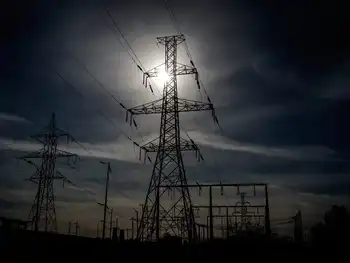Brunswick prepares nuclear-fuel site
By Brunswick Star-News
NFPA 70e Training - Arc Flash
Our customized live online or in‑person group training can be delivered to your staff at your location.

- Live Online
- 6 hours Instructor-led
- Group Training Available
Actual storage of the spent fuel in garage-sized "dry cask" bunkers made of steel and concrete will not begin until 2010.
"We have begun some on-site work and we are on track. We have started to clear the area and we are starting to do some soil remediation studies to determine what we have to do to the area," said Francis McComas, spokesman for plant operator Progress Energy.
Fuel assemblies containing rods filled with radioactive uranium-enriched pellets will be stored in cylindrical metal canisters, which slide into concrete bunkers.
Industry critics say outside storage of the fuel assemblies opens up the possibility of attack by terrorists.
McComas said security measures will be taken, including the use of guards.
"We are confident that the storage facility will be a viable option," McComas said. "It will be a safe way to store the fuel."
Nuclear Regulatory Commission spokesman Roger Hannah said dry cask storage was re-examined after the Sept. 11 attacks.
"We did consider it post 9/11. There were a number of efforts to look at issues that were not considered before with dry cask storage. There were a number of enhancements made and there were some number of things done with equipment and personnel," Hannah said.
He would not elaborate.
The storage canisters to be used at the Brunswick property are of a horizontal, rather than vertical, design. Twenty of the modules, each with a storage capacity of four to five years, are scheduled to be on site by 2010. The canisters will be located about 200 yards north of the plant, near an access road running parallel to the plant's intake canal, utility officials said.
The storage site won't be visible from the road or from the Cape Fear River.
The commercial nuclear industry does not expect to be able to use the proposed federal repository at Yucca Mountain, Nev., anytime soon.
Resistance to the project remains strong in Nevada. Industry observers have said the earliest the underground disposal site would begin accepting spent nuclear fuel is 2010, with more realistic projections of 2016 or 2017.
"The expectation is that at some point there will be a permanent disposal facility, but we are obviously cognizant of the fact it will be some time," Hannah said.
McComas said an electricity transmission line must be moved to make way for the Brunswick outdoor storage site, along with some towers that the line runs across. Underground fiber-optic cables, along with telephone and electricity lines, must also be rerouted, McComas said.
About 20 metric tons per year of used nuclear fuel is generated by a typical plant; about 2,000 metric tons of spent fuel is generated each year by the nuclear industry, according to the Nuclear Energy Institute.
Used fuel is already stored at the Brunswick site in "spent fuel pools" in buildings housing the plant's two reactors.
"There are a number of plants that have been doing this for a while and a number of plants that are going to dry storage," Hannah said.
The pools inside the Brunswick reactor buildings are about 40 feet deep. The 14-foot assemblies housing the rods containing spent fuel emit radiation and must be cooled in water for five years until they lose some of their radioactivity and can be placed in dry cask storage.
Progress Energy must meet all NRC requirements before outside storage begins at Brunswick, Hannah added.
Progress Energy uses the same dry-cask technology at its Robinson Nuclear Plant in Hartsville, S.C., where outside storage of spent nuclear fuel began in 2005.
The utility also continues to transport fuel assemblies by train from the Brunswick plant in sealed canisters to Shearon Harris, a Progress Energy-operated nuclear plant in southwestern Wake County. The material is stored there in spent fuel pools.
The NRC license to ship the canisters by rail to the Shearon Harris plant will expire in 2008. There is enough capacity in the two spent fuel pools at the Brunswick plant to store the radioactive material until on-site dry storage is available, Progress Energy officials have said.











